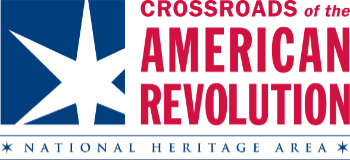Biography People
Lieutenant-Colonel David Rhea Full Biography
I was the third generation of my family to live on land where the Battle of Monmouth was fought in 1778. My Scots grandparents were among the first Europeans to settle there and they eventually owned about 700 acres. My father inherited their land, purchased more, acquired slaves, and became an elder in the Presbyterian Church and a justice of the peace. I was the youngest son in a family that combined farming, milling, and business. I preferred the life of a merchant. We were rebels in the Revolution and by 1778; I was an experienced soldier of the Second New Jersey Regiment and had seen hard service in Canada in 1776, along the Raritan River during the summer of 1777, and in Pennsylvania that fall. Our colonel, Israel Shreve, was wounded at Brandywine in September and until he returned in January, I commanded the regiment at Germantown and during the first terrible weeks at Valley Forge.
After the British abandoned Philadelphia on June 18, 1778 and marched for New York, we retreated in front of them—sniping, destroying bridges, blocking roads, and filling in wells. On June 27, 1778, we were part of the advance force under General Charles Lee camped at the village of Englishtown, five miles west of the British Army. Early the next morning on the march towards Monmouth Court House, we soon came to the Presbyterian meetinghouse where my father had been an elder. Down the hill and across the bridge was my nephews’ land and my sister’s house was a mile and a half away. While reconnoitering with General Wayne, I took a message to General Lee with information about the British rear guard and Wayne’s plan to attack. I returned to Wayne and showed him where he could cross a stream and march his soldiers through a cider orchard to attack the British rear guard. Then, I joined a troop of militia cavalry and rode closer to the British rear guard that had stopped retreating.
As I got closer, I could see some British light dragoons were forming a line to charge with four or five times as many dragoons as there were militia horsemen. Just then, one of General Lee’s aides-de-camp asked the militia colonel “to let the British horse come as near as they could, with safety, and then to retreat off towards where General Wayne was.” The British light dragoons trotted slowly towards the militia horsemen then picked up speed. Some of the militia horsemen began galloping for the orchard and a gap between two battalions of Continental infantry. As I neared the orchard, I heard the shouts of “Take aim” and “fire.” The dragoons yanked their horses around and fled back to the red-coated infantry on the hill. I rejoined General Wayne and the Continentals continued marching east to get behind the British.
As they crossed the Covenhovens’ farm, the best troops in the British Army came at them from the east. General Lee tried to form a defensive line, but when one third of his soldiers disappeared into the woods, he ordered a retreat. Lee’s advance force was retreating when General Washington rode up and while he was asking why the advance force was retreating, I told his aide-decamp that I knew the area very well and would be glad to serve General Washington. Lee agreed to try to delay the approaching British. Washington’s aide told him about me and was told to bring me to him as quickly as possible. I rode with Washington and began showing him around the hill on Henry Perrine’s farm. The hill was well protected and if the British tried a frontal attack they would suffer heavy casualties. Generals Wayne and Lee tried to slow the advance of the British. As the British charged them our infantry and artillery shredded the front of the British column and they retreated to the hedged fence on our west farm. The British brought up ten field pieces and began cannonading Perrine’s Hill. I told Washington that there was a hill south of the hedged fence and if Continental artillery opened fire from it, the British would have to abandon their position. Washington told me to find Greene and lead his infantry and artillery to the hill. Almost six miles, and more than an hour-and-a-half later, I sat down and wrote to Washington. “Dear General . . . [we] will in A few Moments open four pieces of Artillery upon their left flank.” The British retreated and the battle was won. A militia rider carried my note to Washington because my horse and I had traveled far enough this hot day and made an important contribution to winning one of the largest battles of the American Revolution.
I never married and died June 14, 1821 at the age of 81. My tombstone is in the Tennent churchyard.
FURTHER SOURCES
The Lee Papers (NY: Collections of the New-York Historical Society, 1874), vol. 3, page 80-81, 164.
The Papers of George Washington, Revolutionary War Series, Edward G. Lengel, Editor (Charlottesville: University Press of Virginia, 2006), vol. 15, p. 582.
